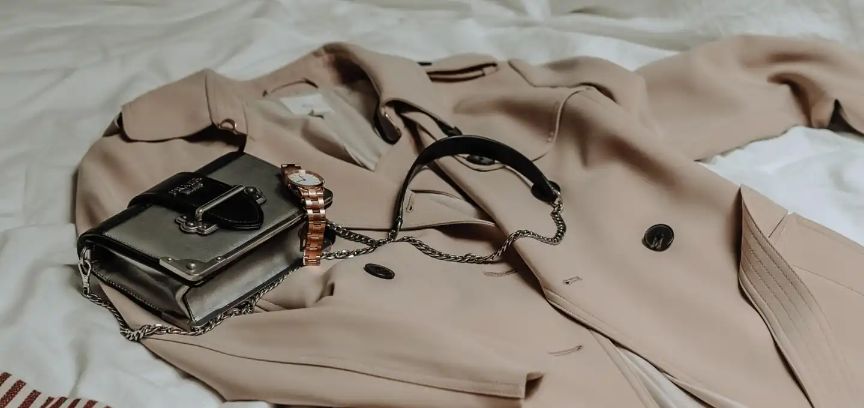Exploring Sustainable Initiatives by High-End Brands
4 min read
22 Apr 2024
The fashion industry has come under increasing scrutiny for its environmental and ethical impact. In response to growing consumer demand for sustainability, many high-end brands have initiated efforts to reduce their ecological footprint and promote responsible practices. These luxury fashion houses are not only setting trends in style but also in sustainability. In this article, we'll explore some of the sustainable initiatives undertaken by high-end brands to align their values with environmental and ethical responsibility.
Gucci: Carbon Neutrality and Circular Fashion
Gucci, an iconic Italian luxury brand, has embarked on a journey toward carbon neutrality. In 2018, they announced a commitment to offsetting all of their greenhouse gas emissions. Gucci achieves this through a combination of reducing emissions in their operations and investing in conservation projects around the world to offset the remaining emissions.Moreover, Gucci has also embraced circular fashion with its "Gucci-Equilibrium" initiative. This program promotes a circular approach to fashion by extending the lifespan of products, recycling materials, and reducing waste. Gucci has introduced repair services, encouraging customers to repair and care for their Gucci items rather than discarding them.

Prada: Sustainable Nylon and Green Packaging
Prada, another renowned luxury brand, has taken significant steps to enhance its sustainability. Prada has introduced Re-Nylon, a project aimed at replacing traditional nylon with sustainable alternatives made from recycled ocean plastic. This initiative reflects Prada's commitment to reducing its use of virgin plastic and addressing the issue of marine pollution.Additionally, Prada has introduced eco-friendly packaging, featuring recycled materials and reduced plastic. They have also collaborated with UNESCO to support educational initiatives for young people in remote areas, underscoring their commitment to social responsibility.
Stella McCartney: Pioneering Ethical Fashion
Stella McCartney has long been a pioneer in ethical and sustainable fashion. The brand refuses to use leather, fur, or exotic skins in its collections, and it incorporates cruelty-free alternatives, such as vegetarian leather and sustainable materials like organic cotton and recycled polyester.Stella McCartney also actively promotes transparency within the supply chain, showcasing their commitment to ethical and sustainable practices. They are members of the Fashion Revolution movement, which calls for greater transparency in the fashion industry, and they are involved in initiatives to reduce waste and water consumption.
Burberry: Tackling Waste and Carbon Emissions
Burberry, the British luxury brand known for its iconic trench coats, has set ambitious sustainability targets. The brand is committed to becoming carbon neutral by 2022 and has pledged to eliminate the use of hazardous chemicals in its supply chain by 2020.Burberry also focuses on minimizing waste by revaluing and repurposing materials. For instance, they have introduced the "ReBurberry Edit," which features items made from sustainable materials or materials sourced through responsible practices. Additionally, Burberry is exploring circular business models, such as offering clothing rental services.
Ralph Lauren: Sustainable Cotton and Responsible Sourcing
Ralph Lauren, a global leader in premium lifestyle brands, has embraced sustainability by committing to using 100% sustainably sourced cotton by 2025. The brand aims to reduce its environmental impact by sourcing cotton through the Better Cotton Initiative (BCI), a program that promotes responsible cotton production.Ralph Lauren is also dedicated to responsible sourcing practices for its leather and other raw materials. The brand emphasizes transparency in its supply chain and has joined the Sustainable Apparel Coalition, a group of apparel and footwear brands committed to sustainable practices and transparency.
Chanel: Investing in Sustainable Materials
Chanel, the iconic French fashion house, is making strides in sustainability by investing in innovative materials and initiatives. They have invested in the production of lab-grown diamonds, reducing the demand for traditional diamond mining, which often has negative environmental and ethical consequences.Chanel is also exploring sustainable textiles, such as Piñatex (a fabric made from pineapple leaf fibers) and mushroom leather. By incorporating these alternatives into their designs, Chanel is contributing to a more sustainable future for luxury fashion.
Valentino: Promoting Responsible Sourcing
Valentino, the Italian luxury brand renowned for its elegance and craftsmanship, has made responsible sourcing a priority. They are committed to sourcing materials like cashmere, silk, and wool through ethical and sustainable practices. Valentino is also a member of the Sustainable Fibre Alliance, working to promote responsible cashmere production.In addition to responsible sourcing, Valentino is actively working to reduce waste and improve energy efficiency in its operations, further demonstrating their commitment to environmental stewardship.
These high-end fashion brands are demonstrating that luxury and sustainability can go hand in hand. By adopting responsible practices, investing in sustainable materials, and promoting ethical initiatives, these brands are setting an example for the fashion industry as a whole. They are not only meeting the growing demand for sustainable fashion but also contributing to a more responsible and conscientious approach to luxury fashion in the 21st century. As consumers increasingly prioritize sustainability, these initiatives showcase the industry's ability to adapt and evolve to meet the evolving demands of a more eco-conscious market.



